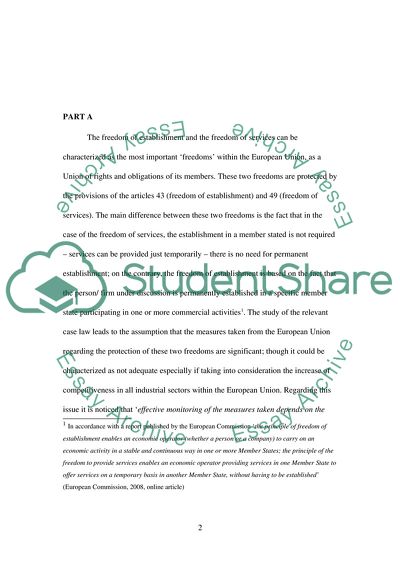Cite this document
(Characteristics of the Freedom of Establishment and the Freedom of Coursework, n.d.)
Characteristics of the Freedom of Establishment and the Freedom of Coursework. https://studentshare.org/law/1717619-law-of-the-european-union
Characteristics of the Freedom of Establishment and the Freedom of Coursework. https://studentshare.org/law/1717619-law-of-the-european-union
(Characteristics of the Freedom of Establishment and the Freedom of Coursework)
Characteristics of the Freedom of Establishment and the Freedom of Coursework. https://studentshare.org/law/1717619-law-of-the-european-union.
Characteristics of the Freedom of Establishment and the Freedom of Coursework. https://studentshare.org/law/1717619-law-of-the-european-union.
“Characteristics of the Freedom of Establishment and the Freedom of Coursework”. https://studentshare.org/law/1717619-law-of-the-european-union.


